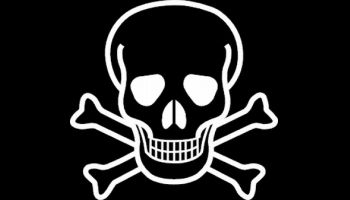UK Firms Fined £2.2m For Software Piracy

The BSA doubled its take from ‘negligent’ UK businesses in 2010, with help from disgruntled employees
The Business Software Alliance (BSA) on Monday said it more than doubled the sum it won from UK businesses through legal actions over software licensing in 2010, taking in £2.2 million for the year.
The organisation, backed by major IT companies such as Microsoft and Apple, also said its enforcement efforts are being aided during the economic crisis by disgruntled employees who report the lax licensing regimes of their companies.
Negligence
“Companies throughout the UK continue to be negligent when it comes to software licensing,” the BSA said in a statement, citing as examples an English design company, a Scottish travel company and a Northern Irish medical company.
Those companies paid out £24,000, £10,000 and £12,000 respectively in settlement costs and new licence fees, the BSA said. The largest settlement of the year was for £40,000.
The BSA said it has not relied on employee reports alone, and has also carried out awareness campaigns around its enforcement efforts, including a month-long advertising campaign in Birmingham, which was the source of 15 percent of all of BSA’s reports in the UK last year.
“Companies that cut corners to save costs when it comes to renewing their software licenses are breaking the law and this is an ideal excuse for frustrated employees to secure some payback on management,” stated Julian Swan, director of compliance marketing EMEA. The BSA encouraged employees to report their companies via its website.
Across EMEA the BSA reaped more than £11.3 million last year, almost £1 million more than 2009. It received more than 3,000 leads and carried out a total of 1,795 legal actions in the region, settling with 447 companies. The BSA did not indicate the fate of the 1,348 companies with which it did not settle.
Robbing UK plc
The group argued that companies who neglect to comply with software licensing rules should understand not only that they face financial risks, but also that they are robbing the UK economy.
“Many businesses need to understand that software is a valuable asset and is a key driver of growth for UK plc,” stated Michala Wardell, chair of the BSA UK Committee.
The organisation cited figures it published in September claiming that reducing software theft in the UK by 10 percent over four years would create 13,011 high-tech jobs, £5.4 billion in new economic activity and £1.5 billion in new taxes by 2013 – with 87 percent of those benefits remaining in the local economy.
‘Propaganda’
That report was called “propaganda” after its release by the UK’s Pirate Party.
“It’s disappointing, when we are keen to have a serious and informed debate on piracy, that the BSA are still trotting out this sort of transparent propaganda,” said Andrew Robinson, leader of the UK Pirate Party, speaking to eWEEK Europe at the time. “I have one simple question for the BSA: Where is this mythical $193 billion going to come from?”
The US Government Accountability Office (GAO) last year revealed that many of the claims made about the damage piracy causes to the economy – and quoted by the US government – could not be substantiated “due to the absence of underlying studies”.
Last year’s GAO report stated that any overarching conclusions of piracy’s impact on the broader economy may not be possible as a result of such studies – and went as far as to say that there are some potential positive economic effects of counterfeiting and piracy.
Software piracy ‘acceptable’
“Some consumers may knowingly purchase a counterfeit or pirated product because it is less expensive than the genuine good or because the genuine good is unavailable, and they may experience positive effects from such purchases,” it stated. “Consumers may use pirated goods to ‘sample’ music, movies, software, or electronic games before purchasing legitimate copies, which may lead to increased sales of legitimate goods.”
Research by Microsoft last year found that one in three British adults considers using pirated software to be “acceptable”. In a survey of 1,000, one in eight admitted to using pirated software at work, and more than half believed their employer would consider the practice acceptable.
